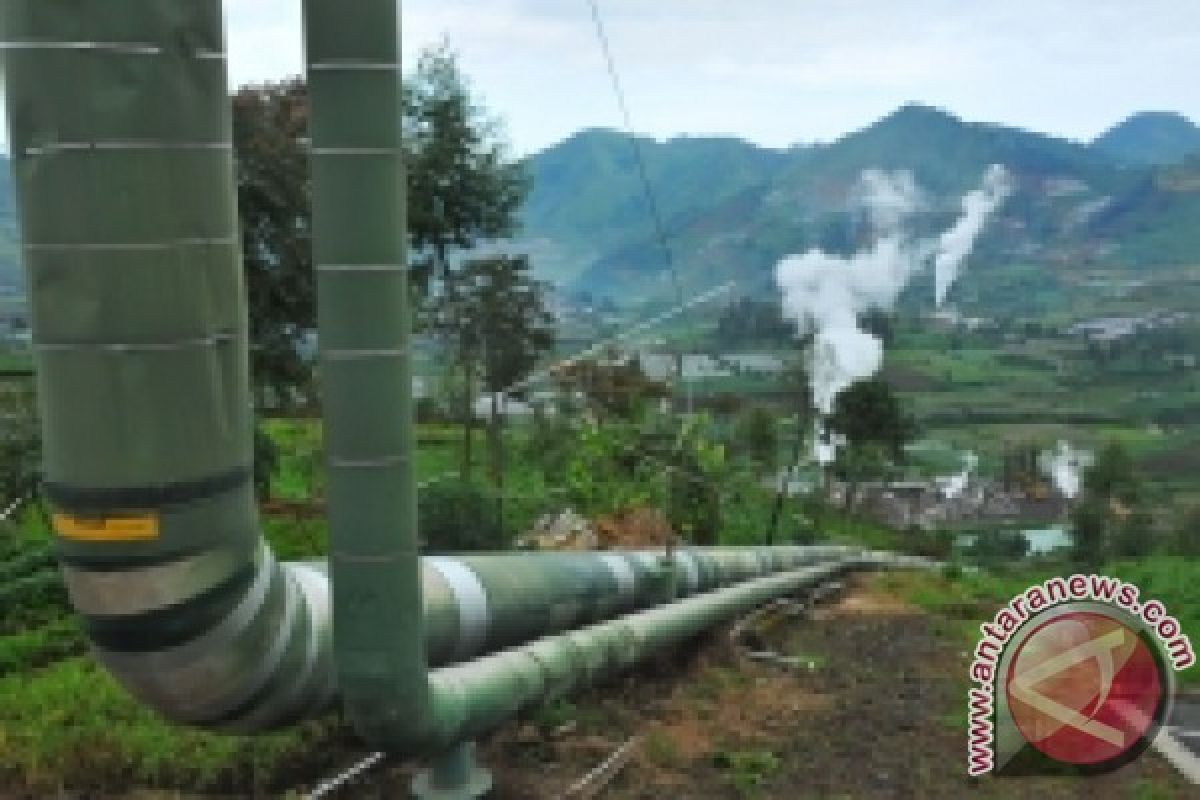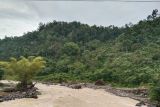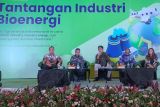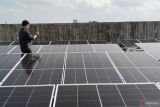The country has in abundance sources of renewable energy but most of which have remained untapped.
Director General of Renewable Energy and Energy Conversion Rida Mulyana said it was time for Indonesia to focus more on development of new and renewable energy in its bid to create energy security.
"Until when we have to wait. Waiting until all oil reserves were depleted?" she queried addressing energy stakeholders in Palembang earlier this month.
She said Indonesia needs to work hard to cut consumption of fossil energy , which is the main contributor to climate change.
President Joko Widodo (Jokowi)has pledged in a recent climate change summit in Paris to scale down the use of fossil energy in favor of new and renewable energy.
The president even offered incentive for processing garbage to produce energy, Rida said.
She said utilization of new and renewable energy have been regulated under the Law No 30 of 2007 and the government regulation No. 79 of 2014.
She said indeed it is not a very difficult problem for Indonesia to generate renewable energy as the country is rich in natural resources.
Indonesia could sustain high production of clean and environmentally energy with the availability in abundance of sources if new and renewable energy, she said.
"However, being blessed with the riches in natural resources we have continued to rely more on fossil energy. Indonesia is wasteful in fossil energy," she said.
She said the government has indeed charted three programs for the use of new and renewable energy - energy conversion by reducing the use of fossil energy , development of new sources of energy (liquefied coal, methane gas, coal gas, nuclear energy and hydrogen) and renewable energy (geothermal, hydro energy, bio energy, solar energy, wind energy and sea energy).
However, implementation is not easy, often hampered by problems like finance, land clearing, red tape, etc.
"Good programs would be useless without support from regional administrations especially after the issuance of the Law No. 23 of 2014 on regional administration ," Rida said.
The country should change the paradigm by not seeing energy merely as a basic necessity but also as a capital for national development, she said.
Role of Regional Administrations
The role of regional administration in promoting the use of new and renewable energy is vital. Lack of interest shown by regional administrations in developing new and renewable energy has been one of the factors delaying the use of new and renewable energy in the country.
The government has set aside large funds in the state budget for development of new and renewable energy as part of the target to build new power plants with a total capacity of 35,000 megawatts until 2019.
Regional administrations are invited to propose new and renewable energy projects to the center, Rida said.
"The proposals would be verified. If the projects are feasible the central government will certainly approve them," she said.
She said currently the energy and mineral resource ministry already received proposals for projects valued at Rp4 trillion from regional administrations.
Currently the proposals are in the process of verification, she said, adding projects considered feasible would get approval.
"One important factor is high commitment of the regional administration, which is expected to prepare the land," she said.
Maintenance cost could be covered with special allocation fund and village fund, she said.
"This model could be used to build mini hydro power plants," she added.
She said the government has a target to expand the country`s power generating capacity by 35,000 MW in 2019 to add to the present capacity of 55,528 MW.
In order to reach the target the stakeholders could not rely only on the state budget for finance as state budget is expected only to serve as a trigger, she said.
Regional administrations are also expected to help in seeking investors to build more power plants, she said.
"That is why the government always encourage to create conducive investment climate as state budget could not alone finance the projects needed to reach the target," she said.
She said the country has 12,600 villages and 5,000 of them are still without electricity.
Head of the general mining division of the South Sumatra regional mining and energy service Izromaita said the province has been active in developing new and renewable energy to reduce dependence on fossil energy.
However, the region still relies much on fossil energy from oil, coal and natural gas partly because the region still is rich in fossil energy.
Meanwhile, the country`s production of fossil fuel including oil and coal has tended to decline from year to year partly because of falling prices lately .
In addition with the falling prices, investors are less interested in spending large fund for explorations. The prospect of success is not worth the risk .
The South Sumatra regional administration is aware of the problem that it has started development of new and renewable energy such as solar energy, water energy plants and geothermal energy, Izromaita said.
"These types of energy are clean, and environmentally safe and the sources would not be depleted," he said.
He said solar energy is already developed in and used in a number of district areas with limited capacity, but enough to meet local requirement.
Solar energy is used mainly by household consumers for cooking such as to boil water, and by small industries.
The regional administration has also built micro hydro power plants in a number of districts.
Small units of geothermal power plants are already operational in six locations in the western districts of South Sumatra including twi units in the regency of Muaraenim -- Rantau Dedap (225 Mwe) and Lumut Bali (835 Mwe); three units in the regency of OKU Selatan -- Ulu Danau (231 MWe), Marga Bayur (339 MWe), and Wai Selabung (231 MWe), and one in the regency of Lahat memiliki in Tanjung Sakti (50 MWe).
"The regional administration still has plan to build a geothermal power plant in the regency of Muaraenim," Izromaita said.
Currently , Indonesia is relying much on coal and oil and natural gas for energy , he said, adding depende3nce on fossil energy is till high.
Fossil fuels, apart from being expensive and the reserves dwindling rapidly, are not clean causing air, water and land pollution, he said.
They are the main contributors to production of green house gas emission that causes global heat.
He said Indonesia has new energy sources identified with capacity of 300,000 MW, but only 3 percent of the capacity has been used.










